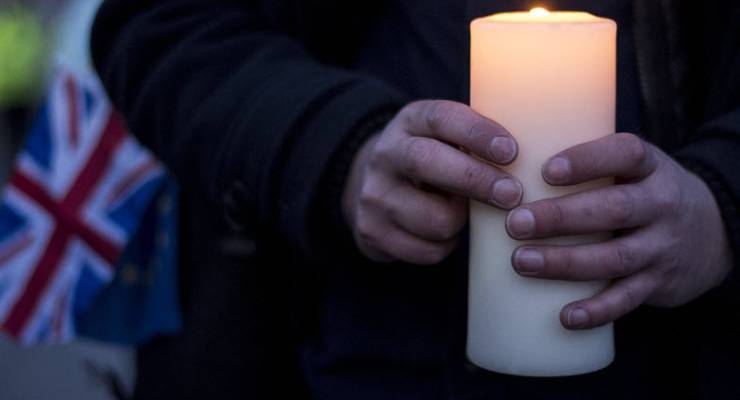
Political and media responses to terrorist incidents have now become ritualised. In the aftermath of any sort of attack in an Anglophone country or in Europe (terrorism elsewhere, even by Islamic State, however massive the death toll, is of minimal interest) the following will happen …
The media will obsessively cover the event and, if overseas, Australian media will search desperately for some Australian connection, however tenuous. Coverage will reach fever pitch when the identity of the assailant is revealed; if it is a Muslim, or someone who sounds like they might be Muslim (the Westminster attacker is a Muslim convert, reports suggest), coverage ramps up further; if it turns out to be a non-Muslim, the media will begin losing interest; the incident will be downgraded to mere “murder” and the word “terrorism” will start vanishing from coverage.
In response to an attack elsewhere, the Australian prime minister will hold a media conference to offer a litany of cliches. The attack will be denounced, sympathy and solidarity offered, assurances that the government is monitoring the situation and that security has been “upgraded”. Australians will be told that the best response is to carry on as normal, and that terrorists will never be allowed to win will be repeated regularly, as if some fool, somewhere, has said that the latest terror attack showed we have to agree to whatever the demands of the attackers are.
Islamophobes, bigots and conspiracy theorists will have already tried to exploit the attack and call for some sort of measures against Muslims, and will continue to try even if the assailant is revealed as a white, non-Muslim person. And Muslim groups will have already issued denunciations of the attacks, despite the constant insistence from bigots that they never do so. Islamic State will find time as it retreats on the battlefield to issue a claim of responsibility; the usual scepticism with which the pronouncements of terrorists is treated will be ditched and the claim taken at face value.
The rituals are in place despite the fact that we are constantly told that terrorism should not be “normalised”. And that’s the least of the hypocrisies. Gone is Margaret Thatcher’s warning (issued back in the days when the IRA was busy murdering over 90 people on mainland Britain alone) that “we must try to find ways to starve the terrorist and the hijacker of the oxygen of publicity on which they depend”. On the contrary, political leaders work assiduously to provide exactly that oxygen, turning even terror-related police raids, in which no community danger is involved, into occasions for media conferences and the recitation of the cliches.
We are also regularly injuncted by politicians to go about our lives as usual, that this is the best response to terrorism, that terrorism is aimed at the freedoms we cherish so much and we should not be cowed into not exercising those freedoms. This is often said even as the same politicians talk about yet further “strengthening” of anti-terrorism laws that directly curb the freedoms terrorists are alleged to hate. The only reason Theresa May, in response to the Westminster attack, said that there were no plans for any review of terrorism laws in the UK is because she herself has presided in recent years over a dramatic, draconian expansion in mass surveillance powers that mean the UK is a greater surveillance state than many autocracies — among other changes, the online search history of everyone in Britain must now be retained so security agencies can examine it, and those agencies now have a free hand to break into anyone’s computer, or any servers, without restraint.
But the already extensive surveillance powers held by UK agencies plainly didn’t enable them to prevent Khalid Masood from undertaking his attack — despite his having an extensive criminal record, despite his having been previously examined for extremist connections. This is a pattern so frequent that it is almost a rule: the perpetrators of terror attacks in western countries are almost invariably known to security agencies already for possible terrorist connections or extremism, or are known to police and have criminal records, or both. Mass surveillance is merely generating vast troves of personal data on entirely innocent citizens while potential terrorists are known to authorities and could be the subject of more fruitful targeted surveillance.
But no amount of evidence can undermine the “collect it all” mentality of governments that not merely doesn’t help prevent terrorism, it may actually be making its prevention and investigation more difficult. Rituals can be very comforting, not least because they create the illusion of doing something.








Crikey is committed to hosting lively discussions. Help us keep the conversation useful, interesting and welcoming. We aim to publish comments quickly in the interest of promoting robust conversation, but we’re a small team and we deploy filters to protect against legal risk. Occasionally your comment may be held up while we review, but we’re working as fast as we can to keep the conversation rolling.
The Crikey comment section is members-only content. Please subscribe to leave a comment.
The Crikey comment section is members-only content. Please login to leave a comment.